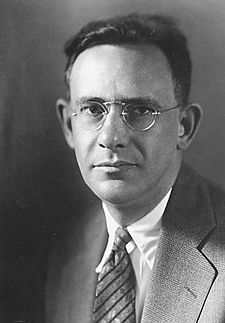Today, if you hadn't guessed by the title, is Edward Sapir's birthday. Unfortunately, he's dead. Fortunately, his legacy lives on the world of linguistics.
 |
| It's not a bad place to be educated. |
Born to "German" parents, the place where he was born was actually in Prussia, which is now Poland. He moved to the U.S. where he studied Germanic linguistics at the University of Columbia, which is still one of the top language universities in the United States. It also allowed Jewish students in without any limitations, unlike other universities at the time.
His most important work included the classification of Native American languages. His work with Native American languages was even featured in the Encyclopædia Britannica. He took particular interest in the Athabaskan language family.
Sapir's other famous "work" included the Sapir-Whorf Hypothesis. Despite the name, Sapir never co-authored any work with Whorf and, in fact, never made a hypothesis. It's just a useful label put on to some of the work he did in terms of linguistic relativity, just like Whorf.
 The Sapir-Whorf Hypothesis stipulated that the way people think, their cognitive processes, are affected by language. The idea that Inuits have several words for snow was an example used by Whorf to explain the hypothesis. It was, of course, found to be false.
The Sapir-Whorf Hypothesis stipulated that the way people think, their cognitive processes, are affected by language. The idea that Inuits have several words for snow was an example used by Whorf to explain the hypothesis. It was, of course, found to be false.
Edward Sapir's work will be remembered for quite some time, not just amongst linguists, but also by everyone who wrongly quotes that "Inuits have hundreds of words for snow"!
Towards the end of his life Sapir was the head of Anthropology at Yale, where he continued to work on the relationship between anthropology and languages. Amazingly, few before him had thought that there'd be a link between the two!
He died in 1939 in New Haven, Connecticut.

No comments:
Post a Comment